American Committee on Arthropod-Borne Viruses (ACAV)
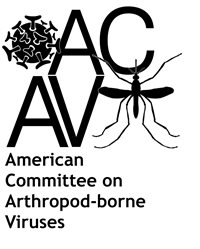 |
.jpg?width=100&height=50)
Donate to ACAV and supports its efforts to promote the study of arthropod-borne viruses (arboviruses) through training and travel fellowships, advocacy, and advising the scientific and public health communities in the areas of virus classification, laboratory safety and biocontaiment. |
Vision Statement
A world free from arboviral diseases
Mission Statement
We generate and share scientific evidence, inform health and science policy, guide
considerations of arbovirus taxonomy, form standards for biosafety in laboratory work on arboviruses, maintain an international catalog of arboviruses, promote career development of arbovirologists, recognize excellence in arbovirology, provide trainee scholarships to attend meetings of the American Society of Tropical Medicine and Hygiene (ASTMH), and advocate for investment in arbovirology research.
Goals & Objectives
Position ACAV to serve as the leading professional subgroup advancing knowledge of arboviruses globally
Expand educational offerings from ACAV members
Augment ACAV member value by serving as the primary site for professional interactions between arbovirologists
Provide expertise globally on arbovirology
Provide training opportunities in arbovirology
Who Are We?
The American Committee on Arbovirology (ACAV) is the largest international scientific
organization of experts aimed at reducing the global burden of diseases caused by arthropod-borne viruses (arboviruses) and zoonotic viruses of global importance including the hemorrhagic fever viruses.
Become an ACAV Member
Join ACAV!
The ACAV meets annually in association with the American Society of Tropical Medicine and Hygiene (ASTMH). An executive council is the governing body of the ACAV, the members of which serve four-year renewal terms.
All people interested in joining the ACAV may do so by attending the ACAV business meeting and signing their name to the attendance sheet or by contacting the Executive Council Chair at the address listed below.
Membership in ASTMH is not a requirement for membership in the ACAV.
Governance
ACAV Executive Council Members - 2019
| Position |
Member |
Term Expires |
| Chair |
Lark Coffey |
2019 |
| Past-chair |
Desiree LaBeaud |
2019 |
| Chair-elect |
David Morens |
2019 |
| Secretary |
Shannon Bennett |
2020 |
| Treasurer |
Rebecca Christofferson |
2020 |
| Archivist/Historian |
Donald Burke |
2019 |
| Councilor |
Laura Kramer |
2020 |
| Councilor |
Desiree LaBeaud |
2020 |
| Councilor |
Rebecca Christofferson |
2021 |
| Councilor |
Lark Coffey |
2021 |
| Councilor |
Thomas Ksiazek |
2021 |
| Councilor |
David Morens |
2021 |
| Councilor |
Shannon Bennett |
2022 |
| Councilor |
Louis Lambrechts |
2022 |
| Councilor for Trainees |
Maria Onyango |
2019 |
| Ex Officio Chair SIE |
Ann Powers |
2019 |
| Ex Officio Chair SALS |
Thomas Ksiazek |
2019 |
| Ex Officio Chair SEAS |
Mike Turell |
2019 |
| Ex Officio Chair SIRACA |
Scott Weaver |
2019 |
ACAV Subcommittees
Subcommittees are an important part of the ACAV and are formed when sufficient interest is presented to the executive council by the ACAV members. The council reviews proposed subcommittees and decides whether a particular subcommittee is needed. When council approves the formation of a subcommittee, it appoints a chairperson. The subcommittee chairperson, in consultation with the ACAV chairperson, appoints subcommittee members. New subcommittees formalize their objectives and structure. All subcommittees report progress on objectives at the annual meeting to the ACAV.
Subcommittee on Arbovirus Laboratory Safety (SALS)
| Tom Ksiazek (Chair) |
Harvey Artsob |
Kristen Bernard |
Sherry Henry |
| Steve Higgs |
Peter Jahrling |
C.J. Peters |
Ann Powers |
| Pierre Rollin |
Walter Tabachnick |
Robert Tesh |
Scott Weaver |
Subcommittee for Evaluation of Arthropod-Borne Status
| Michael Turell (Chair) |
Harvey Artsob |
Greg Ebel |
Steve Higgs |
| Robbin Lindsay |
Donald McLean (retired) |
Chris Whitehouse |
|
Subcommittee on Information Exchange (SIE)
| Ann Powers (Chair) |
Carol Blair |
Mike Drebot |
Brian Hjelle |
| Tom Ksiazek |
Desiree LaBeaud |
Christopher Mores |
Pierre Rollin |
| Robert Tesh |
Mike Turell |
Scott Weaver |
|
Subcommittee on Inter-relationships Among Catalogued Arboviruses (SIRACA)
| Scott Weaver (Chair) |
Nicole Arrigo |
Carol Blair |
Thomas Briese |
| Charlie Calisher |
Rebecca Christofferson |
Gerhard Dobler |
Mike Drebot |
| Andrew Haddow |
Brian Hjelle |
Tom Ksiazek |
Jim LeDuc |
| Emelissa Mendoza |
Emelissa Mendoza |
Ann Powers |
Pat Repik |
| John Roehrig |
Connie Schmaljohn |
Robert Tesh |
Nikos Vasilakis |
Purchase ACAV memorabilia
Support ACAV by purchasing pins, T-shirts and mugs!
These items will be available for purchase at the annual ACAV business meeting during ASTMH meetings.
Education
Wednesday, November 20, 2019
7 am - 3:15 pm
Arboviromics: How ‘omics’ Technologies are Advancing Arbovirus Research and Control
Co-chairs: Felix Hol, PhD and Louis Lambrechts, PhD, HDR
An improved understanding of arbovirus biology and transmission dynamics is essential to the development of disease prevention strategies. A comprehensive view of arbovirus life cycles requires integration of multiple time and length scales, which was often technically limited until recently. In the last decade, advances in ‘omics’ technologies such as high-throughput sequencing and mass spectrometry are providing unprecedented opportunities to advance arbovirus research through increased resolution of observations at multiple temporal and spatial scales. This pre-meeting course will provide an overview of omics techniques applied to arbovirus research and illustrate how the knowledge generated can inform arbovirus prevention and control. Below are some of the topics that will be covered during the course.
Intracellular arbovirus-host interactions
High-throughput techniques, including transcriptomics, proteomics and lipidomics, offer unique opportunities to understand how viruses hijack the host cell machinery and resources to replicate. This can be done through changes in gene expression or through direct physical contact with host machinery.
Arbovirus within-host evolution
Because of their high mutation rate, arboviruses typically exist within their host as a heterogeneous population of related genetic variants, which is considered critical for their fitness and adaptive potential. The advent of high-throughput sequencing has allowed the study of arbovirus genetic diversity and evolution at the within-host level with unprecedented resolution.
Arbovirus surveillance and genomic epidemiology
Tracking the spread of arbovirus outbreaks can assist in their control. Owing to the declining cost and increasing portability of high-throughput sequencing technology, combined with advances in virus phylogenetics, arbovirus outbreaks can be monitored in real-time from initial detection and characterization to transmission chain tracking and outbreak mapping.
- Non-ASTMH ACAV-related courses
Awards
ACAV Travel Awards to attend the ASTMH annual meeting
Up to seven individuals are presented the ACAV student/post-doc travel awards by ACAV. Applicants must be either graduate students or post-doctoral fellows who are actively conducting arbovirus research. Recipients will be awarded a complimentary registration and up to $500 to defray costs associated with attending the meeting. Calls for nominees are solicited in winter of each year.
ACAV Student Travel Award Recipients
2018
| Juan Aguilar |
Nikita Cudjoe |
Laura Dickson |
Danilo Lemos |
| Daniela Michlmayr |
Ranya Mulchandani |
Nivison Nery Jr. |
Maria Onyango |
2017
| Nunya Chotiwan |
Amy Krystosik |
Carla Mavian |
Erin McDonald |
| Wen Yang Tsai |
|
|
|
2016
| Joseph Fauver |
Claire Heath |
Devika Sirohi |
James Weger |
2015
| Albert Auguste |
Rebecca Hamlin |
Lewis Hun |
Stacy Scroggs |
2014
| Nunya Chotiwan |
Brittany Dodson |
Nisha Duggal |
Nathan Grubaugh |
| Meghan Elizabeth Hermance |
ACAV Career Awards
The ACAV presents three career awards. The chair of the executive council appoints a nominating committee for each award. Recipients of awards are selected by the executive council. This procedure provides the nominating committee with nominations and documentation from ACAV members.
The Dalrymple/Young Award is given every three years to a mid-career investigator who has made outstanding contributions to arbovirology. Those awarded the Dalrymple-Young Award for mid-career scientists in zoonotic virology truly follow two of the outstanding leaders in their field during the second half of the 20th century. Nominator and Nominee must be members of ASTMH and ACAV. Medals for the Dalrymple/Young Award are retained by the treasurer until they are requested by the chairperson for presentation at the annual committee meeting.
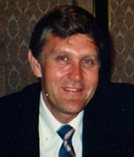 |
| 1939-1992 |
Born in Salt Lake City, Utah and raised in Montpelier, Idaho, Joel Dalrymple received his PhD from the University of Utah and spent his career working on arboviruses and arbovirus diseases, first at the Walter Reed Army Institute of Research in Washington, DC, then at the U.S. Army Medical Research Institute for Infectious Diseases at Ft. Detrick, Frederick, Maryland. Joel's research resulted in more than 100 publications, and he was the recipient of more than 30 national and international honors. In 1983, Joel was the recipient of the Bailey K. Ashford Award of the American Society of Tropical Medicine and Hygiene for outstanding contributions to tropical medicine. Read more...
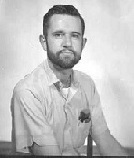 |
| 1938-1979 |
Born in Sheffield, England, Nat Young came to the U.S. at an early age, but retained a keen interest throughout his life in the land of his birth.
Nat studied medicine at Yale where he received the Parker Prize, given to the student with the "best qualifications for the practice of medicine." he interned at New York Univesity, followed by a year in clinical pathology at Yale-New Haven Medical Center. He pursued both interests intensively throughout his tragically shortened life. Read more...
Dalrymple/Young Award Recipients
Kathryn Hanley, 2016
|
Hideki Ebihara , 2013 |
Jonathan Towner, 2010 |
Heinrich Feldmann, 2005 |
Scott C. Weaver, 2002
|
Stuart T. Nichol, 1999 |
Connie Schmalijohn, 1996 |
Donald S. Burke and James W. LeDuc 1989
|
Barry J. Beaty, 1988
|
Thomas Monath, 1985
|
David H.L. Bishop, 1982
|
|
View recipient photos here.
The Richard M. Taylor Award is given every three years to a person who has made outstanding contributions to arbovirology throughout his or her career. Medals for the Taylor Award are retained by the treasurer until they are requested by the chairperson for presentation at the annual committee meeting.
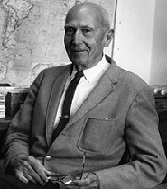 |
| 1887-1981 |
Born in Owensboro, Kentucky, Richard Moreland Taylor, MD, PhD, received a medical degree from the University of Michigan and a doctorate degree in public health from Johns Hopkins University. From 1923 to 1945, he served in Europe and South America for the International Health Division of the Rockefeller Foundation. His first assignment was Montpellier, France, where an epidemic of undulant fever (brucellosis) was creating havoc. In 1936 he was sent to Hungary to establish what would become, in his words, "the first influenza listening post". It triggered the groundwork for influenza virology in RF-initiated institutes of hygiene and epidemiology in Eastern Europe. Read more...
Richard M. Taylor Award Recipients
Laura Kramer, 2018
|
John (Jack) Woodall, 2016* |
Carol Blair, 2015 |
Barry Beaty, 2012 |
CJ Peters, 2012
|
Thomas Yuill, 2009 |
Robert Tesh, 2009 |
Charles Calisher , 2006 |
Frederick A. Murphy, 2002
|
Philip K. Russell, 2000
|
Leon Rosen, 2000
|
Scott Halstead, 1999
|
Tom Monath, 1994
|
James Hardy, 1990 |
Robert E. Shope, 1987 |
Karl Johnson, 1987 |
Harry Hoogstral, 1984
|
Thomas H.G. Aitken, 1984
|
Telford Work, 1981
|
Ottis and Calista Causey, 1980
|
Wilbur Downs, 1979
|
Pedro Galindo, 1977
|
Roy W. Chamberlain, 1975
|
William C. Reeves, 1973
|
W. McD. Hammon, 1970
|
Jordi Casals, 1968
|
Richard M. Taylor, 1966
|
|
*Given out of rotation
View recipient photos here.
The Scherer/Hardy Award is given up to annually to an outstanding doctoral graduate either before graduation or up to three years post-graduation.
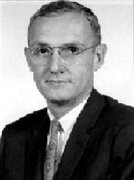 |
| 1925-1982 |
William F. Scherer, 1981 President of ASTMH, was known for his research productivity. He was a pioneer in the field of tissue culture and growth of polio and many other viruses in vitro. He made now classic studies of the epidemiology of Japanese encephalitis in Japan and was a leader in research on Venezuelan encephalitis virus.
Dr. Scherer received his MD from the University of Rochester and had internships in Internal Medicine at Barnes Hospital, Washington University and in Pathology at the Strong Memorial Hospital, University of Rochester.
Read more...
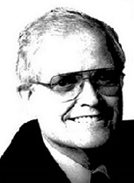 |
| 1932-1997 |
James L. Hardy was a highly respected scientist and teacher at UC Berkeley for 35 years. He was a leader in research on vector-borne viral diseases (arbovirology) and a distinguished professor in the School of Public Health from 1966-1996.
He was born on July 30, 1932 in Fort Benton, Montana. He graduated from the University of Montana in 1954 and stayed there to complete his MA degree in 1956. His thesis was done at the Rocky Mountain Spotted Fever Laboratory, National Institutes of Health in Hamilton, Montana, under the tutelage of Carl Eklund, an early pioneer in research on encephalitis viruses, poliomyelitis and prions.
Read more...
Scherer/Hardy Award Award Recipients
Nathan Grubaugh, 2018
|
Farooq Nasar, 2015 |
Alex Ciota, 2013 |
Amy Schuh, 2013 |
Brian Bird, 2010
|
Patricia V. Aguilar, 2007 |
Gregory D. Ebel, 2004 |
Aaron Brault, 2001 |
Kurt Kamrud,
Ann M. Powers, 1997
|
Scott C. Weaver, 1993
|
George Ludwig, 1989
|
Daniel Sundin, 1986
|
| Rebeca Rico-Hesse, 1983 |
|
|
|
View recipient photos here.
- Robert E. Shope International Fellowship
Although not awarded by ACAV, trainees interested in obtaining support for international training in arbovirology and emerging diseases should consider the
Robert E. Shope International Fellowship that provides $25,000 for international training opportunities in arbovirology and emerging diseases for those with an MD, DVM, PhD or the equivalent. Recipients inspired by Dr. Shope will involve themselves in studies of arbovirology and/ or emerging diseases from clinical to field to laboratory studies. This award provides support for a short-term research experience in the tropics in the area of arbovirology and/or emerging diseases.
News
Highlights
- Check out the work of several ACAV members in this piece produced by Nova by PBS:

- A delegation of ACAV members participated in a historic NIH-sponsored meeting in Havana, Cuba on November 28-30, 2016. This scientific conference titled 'Exploring Opportunities for Arbovirus Research Collaboration' was convened to share information about current arbovirus research, recent findings and future research priorities. It responded to a call for such a meeting at Cuba-U.S. leadership meetings where collaboration on arbovirus research was identified as a priority for scientific interaction. As a result of this meeting, the expectation is that Cuban and U.S. Scientists will identify opportunities for the initiation or expansion of arbovirus research collaboration and cooperation. ACAV is always at the forefront of developments and welcomes this initiative.
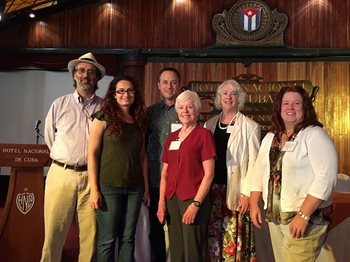
From left: Nikos Vasilakis, Shannan Rossi, Gregory Ebel, Carol Blair, Laura Kramer and Ann Powers
Spring 2015 Newsletter
Fall 2016 Newsletter
Fall 2017 Newsletter
Fall 2018 Newsletter
Arbovirus Catalog (ARBOCAT)
Social Media